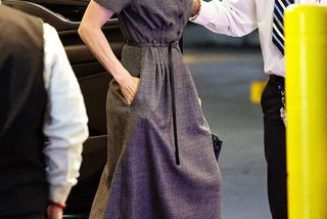
The advent of e-commerce has significantly transformed the landscape of the luxury fashion industry. Once confined to the glitz and glamour of runway shows and exclusive boutiques, luxury fashion brands are now embracing the digital world, making their high-end products accessible to a broader audience. This shift from runway to online has not only changed the way consumers shop but also how luxury brands market and sell their products.
The rise of e-commerce has democratized luxury fashion, breaking down the barriers of exclusivity. Previously, luxury fashion was synonymous with opulent fashion shows, private viewings, and high-end boutiques located in the world’s fashion capitals. However, the digital revolution has made these products accessible to anyone with an internet connection. Now, consumers can browse and purchase luxury items from the comfort of their homes, without the intimidation factor of walking into a high-end store.
This increased accessibility has led to a surge in demand for luxury goods. According to a report by Bain & Company, online sales of luxury goods are expected to triple by 2025, making up an estimated 28% of the total luxury market. This growth is driven by a new generation of consumers who are digitally savvy and value convenience as much as they do quality and exclusivity.
However, this shift to online retailing has not been without its challenges for luxury brands. One of the main hurdles has been maintaining the sense of exclusivity and personal touch that is inherent to luxury shopping. Luxury brands have had to innovate and adapt their online platforms to replicate the in-store experience. This has led to the development of virtual showrooms, personalized shopping experiences, and high-quality product imagery and descriptions.
Moreover, the move to e-commerce has also necessitated a change in marketing strategies. Luxury brands have had to embrace digital marketing techniques, such as social media advertising, influencer marketing, and search engine optimization, to reach their online audience. This has led to a shift in the traditional advertising paradigm, with brands now focusing more on creating engaging online content and less on traditional print and television advertising.
The impact of e-commerce on luxury fashion brands extends beyond sales and marketing. It has also influenced product development and supply chain management. With the ability to track consumer behavior and preferences online, brands can now make data-driven decisions about product design and inventory management. This has led to more efficient supply chains and a reduction in overproduction and waste.
In conclusion, the impact of e-commerce on luxury fashion brands has been profound and far-reaching. It has democratized access to luxury goods, driven demand, and necessitated changes in marketing strategies, product development, and supply chain management. However, despite these challenges, the move to online retailing presents significant opportunities for luxury brands. By embracing digital technologies and adapting to the changing consumer landscape, luxury brands can thrive in the era of e-commerce.









